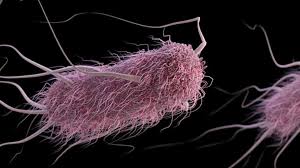
Understanding E. coli: More Than Just a Digestive Ally
Most types of Escherichia coli (E. coli) bacteria are harmless and even play a crucial role in maintaining a healthy digestive system. However, certain strains of E. coli can cause serious health issues, including diarrhea, urinary tract infections (UTIs), and pneumonia. These infections typically result from consuming contaminated food or water, and they can range in severity depending on the strain and the individual affected.
E. coli infections are not limited to gastrointestinal illnesses. While commonly associated with food poisoning, E. coli can also cause conditions such as traveler’s diarrhea, dysentery, and severe infections like spontaneous bacterial peritonitis. The bacteria can spread through various pathways, including contaminated food, unpasteurized milk, tainted water, and person-to-person contact.
There are six notable strains of E. coli responsible for intestinal illnesses, each with unique characteristics. For instance, Enterotoxigenic E. coli (ETEC) is a common cause of traveler's diarrhea, often linked to food and water in areas with poor sanitation. Enteropathogenic E. coli (EPEC) primarily affects children and can lead to outbreaks in nurseries. Enteroaggregative E. coli (EAEC) causes persistent diarrhea without fever, while Enteroinvasive E. coli (EIEC) is related to shigella bacteria and is often contracted through contaminated vegetables or undercooked meat. Diffusely adherent E. coli (DAEC) affects preschool-aged children, and Enterohemorrhagic E. coli (EHEC), also known as Shiga toxin-producing E. coli (STEC), is particularly dangerous due to its ability to produce toxins that damage the intestinal lining.
One of the most severe strains, O157:H7, is a leading cause of acute kidney failure in children. It can also cause life-threatening symptoms such as seizures, confusion, and adult kidney failure. Individuals experiencing severe symptoms like bloody diarrhea, fever, or prolonged illness should seek immediate medical attention.
E. coli infections often occur when people ingest contaminated food or water. Ground meat, untreated milk, and fresh produce are common culprits. For example, E. coli can enter the food chain through the intestines of animals during processing or through water contaminated by manure. Improper hygiene practices, such as cross-contamination in the kitchen, can also contribute to outbreaks. Additionally, E. coli can spread through direct contact with infected individuals, animals, or contaminated soil.
UTIs are another significant health issue caused by E. coli. Women are particularly susceptible due to their shorter urethra, which makes it easier for bacteria to travel to the bladder. Symptoms of a UTI include a strong urge to urinate, burning sensations, and cloudy or blood-tinged urine. Proper hygiene, such as wiping from front to back, can help reduce the risk.
Although E. coli infections can be contagious, preventive measures can significantly reduce the risk. Washing hands thoroughly after handling raw meat, changing diapers, or coming into contact with animals is crucial. Additionally, consuming only pasteurized milk and juices, washing produce thoroughly, and cooking meat to safe internal temperatures can help prevent infections.
Treatment for E. coli infections varies depending on the severity and type. While mild cases often resolve on their own with rest and hydration, antibiotics may be prescribed for some infections. However, antibiotics are not recommended for infections caused by Shiga toxin-producing E. coli, as they can worsen symptoms. Over-the-counter anti-diarrheal medications should also be avoided as they may delay the elimination of the bacteria.
Complications of E. coli infections, such as hemolytic uremic syndrome (HUS), are rare but serious. HUS can lead to kidney failure, high blood pressure, and other life-threatening conditions. Symptoms include bloody diarrhea, fatigue, pale skin, and fainting. Prompt medical intervention is essential in such cases.
Preventing E. coli infections requires vigilance in food handling and personal hygiene. Simple practices, such as washing hands, cooking meat thoroughly, and avoiding unpasteurized products, can go a long way in protecting against this potentially dangerous bacterium. By understanding the risks and taking proactive measures, individuals can safeguard their health and reduce the prevalence of E. coli infections.